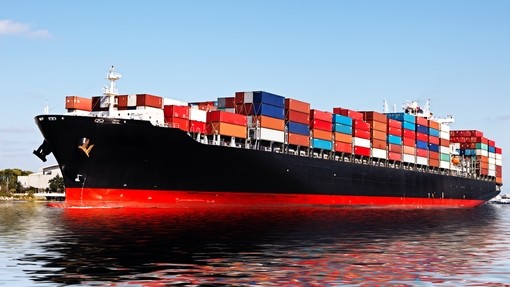Coronavirus – legal implications and force majeure examined

Details
As the global crisis arising from the ongoing spread of COVID-19 (coronavirus) continues, we examine the potential legal implications arising from sale contracts and charterparties involving goods destined for China.
Last month, the China Council for the Promotion of International Trade made headlines worldwide with its issuance of over 1,600 force majeure certificates to firms across a number of sectors covering contracts worth over US$15 billion. Can Chinese counterparties rely on such certificates in support of invoking any force majeure clause in an international sale contract?
The first consideration is that English law does not have a general concept of force majeure. Accordingly, any claim to ‘force majeure’ must rely on a contractual term. If there is no such applicable term, then the party must establish that the contract is frustrated as a whole, such that the contract is effectively null and void. This would involve seeking to prove that the performance of the contract has changed radically from that which was envisaged.
Where there is a contractual force majeure term, the English courts will pay very close attention to how the clause itself is worded. The court may well interpret the term as a form of exceptions clause, for which strict rules are applicable. This has a number of practical consequences.
- A general force majeure clause will stipulate its specific effect, i.e. that it gives rise to a right to delay or suspend performance or to a right to cancel the contract. If the clause only applies to relieve performance during loading operations for example, it will not apply to delay at any other point. If the clause does not provide for cancellation rights, even if there is an operative force majeure event, a right to terminate will not arise under the clause. The party seeking to extricate itself from the contract would then have to fall back on the doctrine of frustration to avoid exposure to a claim for default.
- The clause will usually list a number of events that constitute force majeure, followed usually by a generic catch-all provision. A relevant event in the list needs to have occurred to trigger the effect of the clause. ‘Plague’, ‘epidemic’ and ‘quarantine’ are the most likely contenders for a stipulated category that might encompass coronavirus.
- General catch-all wording such as ‘all other causes beyond the control’ will need to be treated with caution, since the ‘other causes’ must be similar in kind to the specific events previously listed in the clause (the ejusdem generis principle). If on the other hand the general wording is ‘all other causes whatsoever’, that will widen the types of other, non-stipulated event that will trigger the clause.
- Whether there is a relevant event will depend on the facts and crucially, there must be a causal link between the event and the prevention or hindrance of performance.
- The clause will usually provide that the relevant event must be beyond the control of the party seeking to rely on it, as well as prevent or hinder performance. This reflects the general position under English law and brings into play mitigation. Generally, it will not suffice to show that a relevant event has caused delay. If a party can perform its obligation by taking reasonable steps to mitigate the effect of the event, for instance by an alternative method of performance, then it should take those steps.
- Similarly, the party attempting to rely on such a clause may well be required to prove that it would have been able to perform the contract if the event had not occurred.
- Finally, the clause may contain provisions for notifying the counterparty, including the timing of such notice and the information, and possible evidence, to accompany it. The courts require strict application of such requirements, failing which the notice will not be effective.
- In addition, for all charterparty fixtures currently in negotiation, the wording of particular force majeure clauses will need to be analysed closely. For those requiring the occurrence of an unforeseen or unforeseeable event, then the clause will likely not bite for coronavirus-related issues. This is because the fixture itself was negotiated and concluded in the throes of a pandemic, which is known to the world at large and cannot, therefore, fall within the ‘unforeseen’ and/or ‘unforeseeable’ category.
The alternative remedy of frustration involves proving that a supervening event outside the parties’ control has defeated the commercial purpose of the contract. Examples where this doctrine can apply are:
- Performance of the contract (including by any alternative, reasonable method) is impossible due to legal prohibition or insuperable practical obstruction.
- Performance is impossible because the subject matter of the contract is destroyed or requisitioned.
- The event causes an actual and/or prospective delay that is so extreme that the performance of the contract will be radically different from that which the parties originally contemplated.
When analysing whether such a term is applicable, the first step is to identify precisely what contractual obligation is at risk of non-performance and its degree of importance to the contract as a whole. It is not enough, for example, for a CIF China buyer to claim that they are unable to import goods into China, since English law states that a contract simply stating CIF China, with no more, does not oblige the buyer to import the goods into that country or for the seller to procure such import. For a contract to have such effect, the intention must be made known to the seller at the time of or before contracting. Alternatively, the contract itself would have to expressly cater for such obligation, e.g. by requiring certain key documentation to ensure import into China.
Primary obligations that go to the root of the contract include the supply of goods, payment for goods or of freight, and the ability of a ship to get into port in order to load or discharge cargo. An inability to perform this sort of obligation (or extreme delay in performing it) will lead to termination and claims for default unless a contractual term or the doctrine of frustration apply to relieve the obligor from liability.
Breaches of minor obligations due to delay or inability to perform will usually only give rise to damages unless a contractual term protects the obligor. The doctrine of frustration will not come into play at all in this context.
Both force majeure and frustration are difficult doctrines to rely on to absolve a party of their performance obligations. Because of the effect of a force majeure clause in ending a contract or suspending performance, it will be strictly interpreted and, therefore, not straightforward to apply with any certainty in any given case. Similar considerations apply to declarations of frustration.
The best recommendation to anyone seeking to rely on a force majeure clause or considering declaring frustration is to investigate all avenues for alternative performance. In the authors’ experience, most force majeure defences fail either because causation and mitigation cannot be or have not been proved, or because of technical mistakes in the notice provisions.
Whether coronavirus is a force majeure event will depend heavily on the facts of any given situation and on the specific terms of any contractual provision. Care should be taken in giving notice of force majeure to ensure that the notice correctly identifies a qualifying event and is given in accordance with the relevant clause (with particular care given to any applicable time constraints within which notice should be given). An incorrect declaration of force majeure could amount to a repudiatory breach. Similarly, a party in receipt of a force majeure notice should proceed with caution and check contracts to ascertain whether force majeure is applicable at all. Accepting a wrongful notice and diverting cargo could amount to anticipatory breach.
For further updates and other articles discussing the impact of the coronavirus please view our coronavirus hub.






